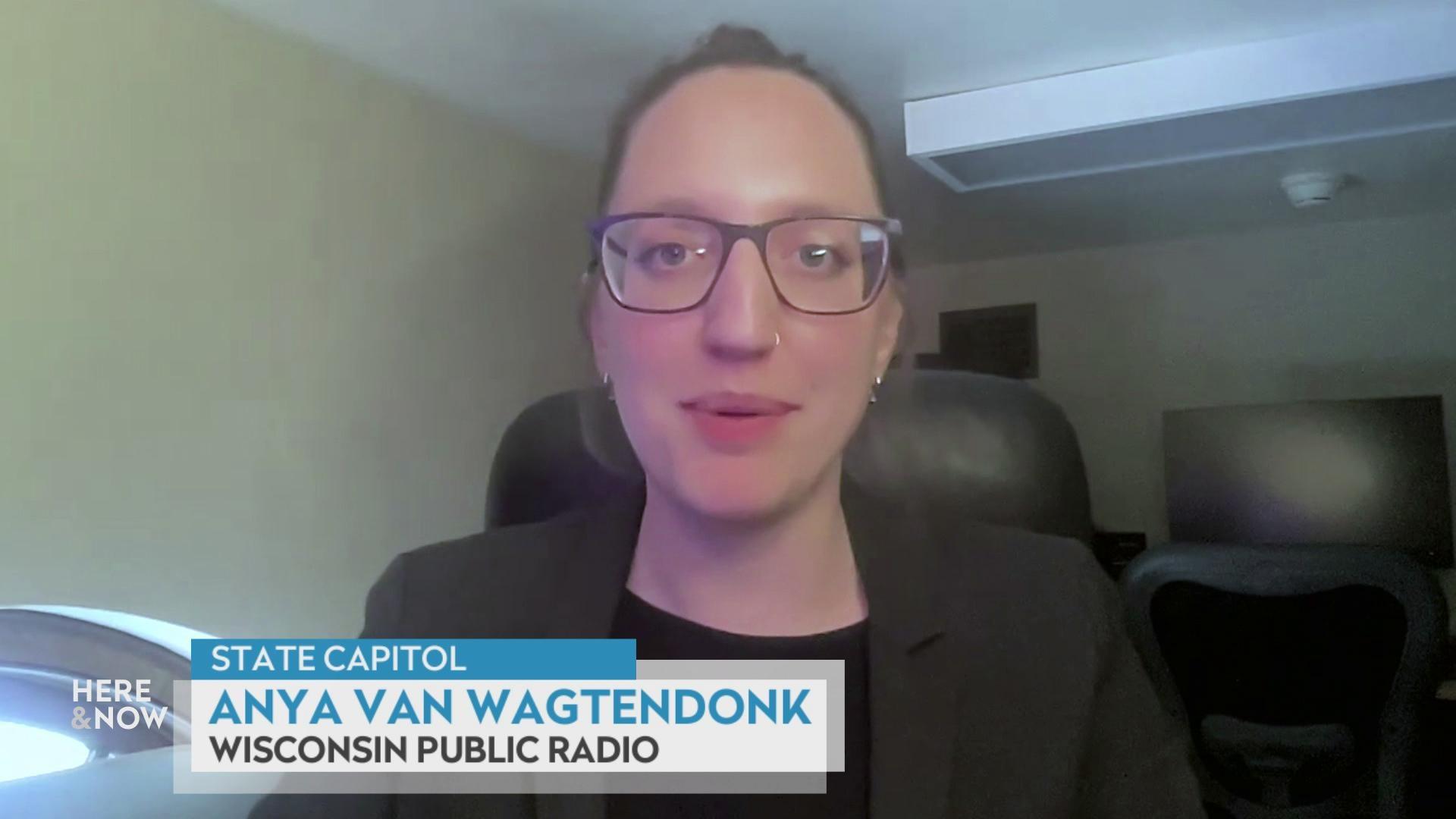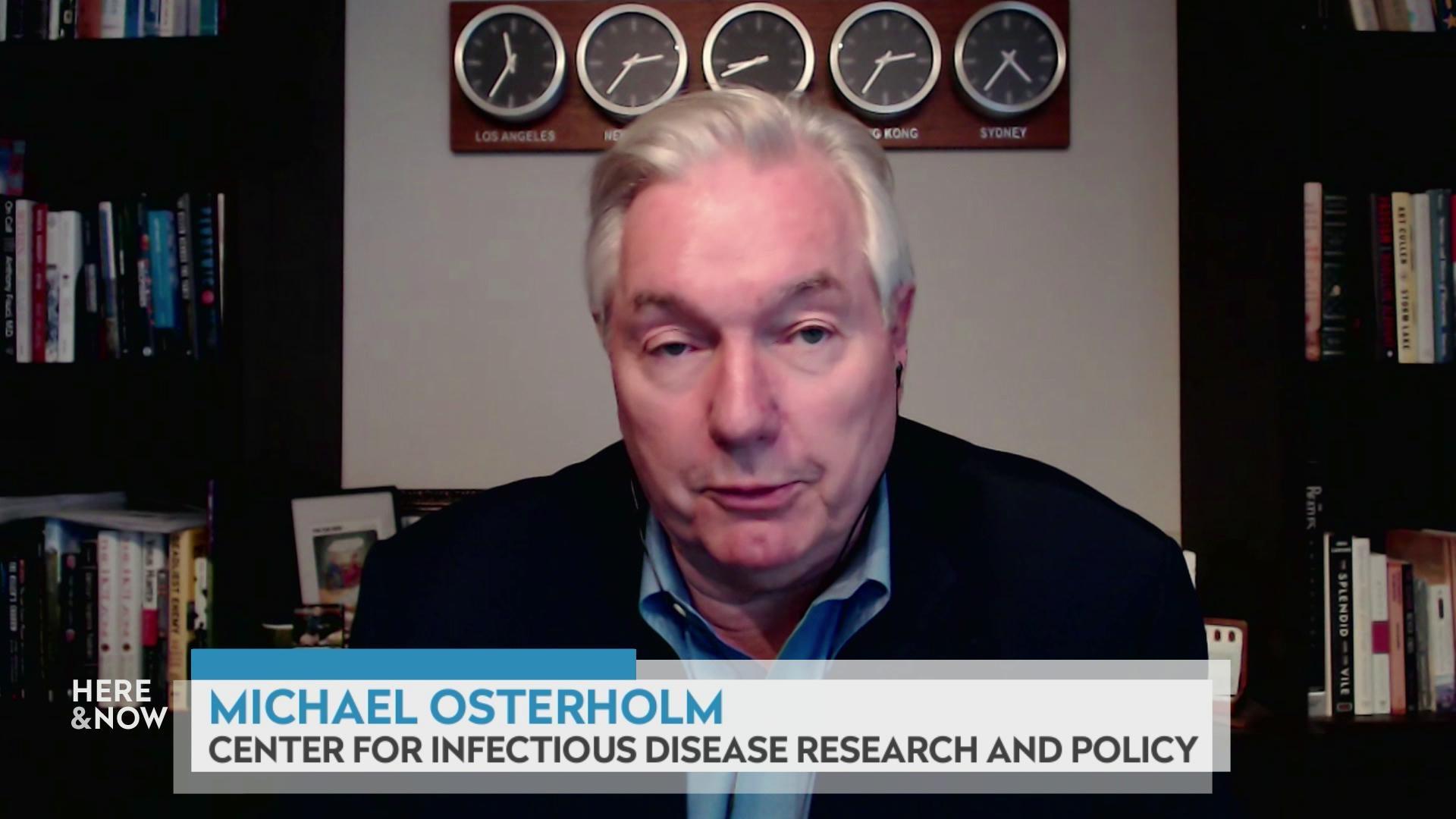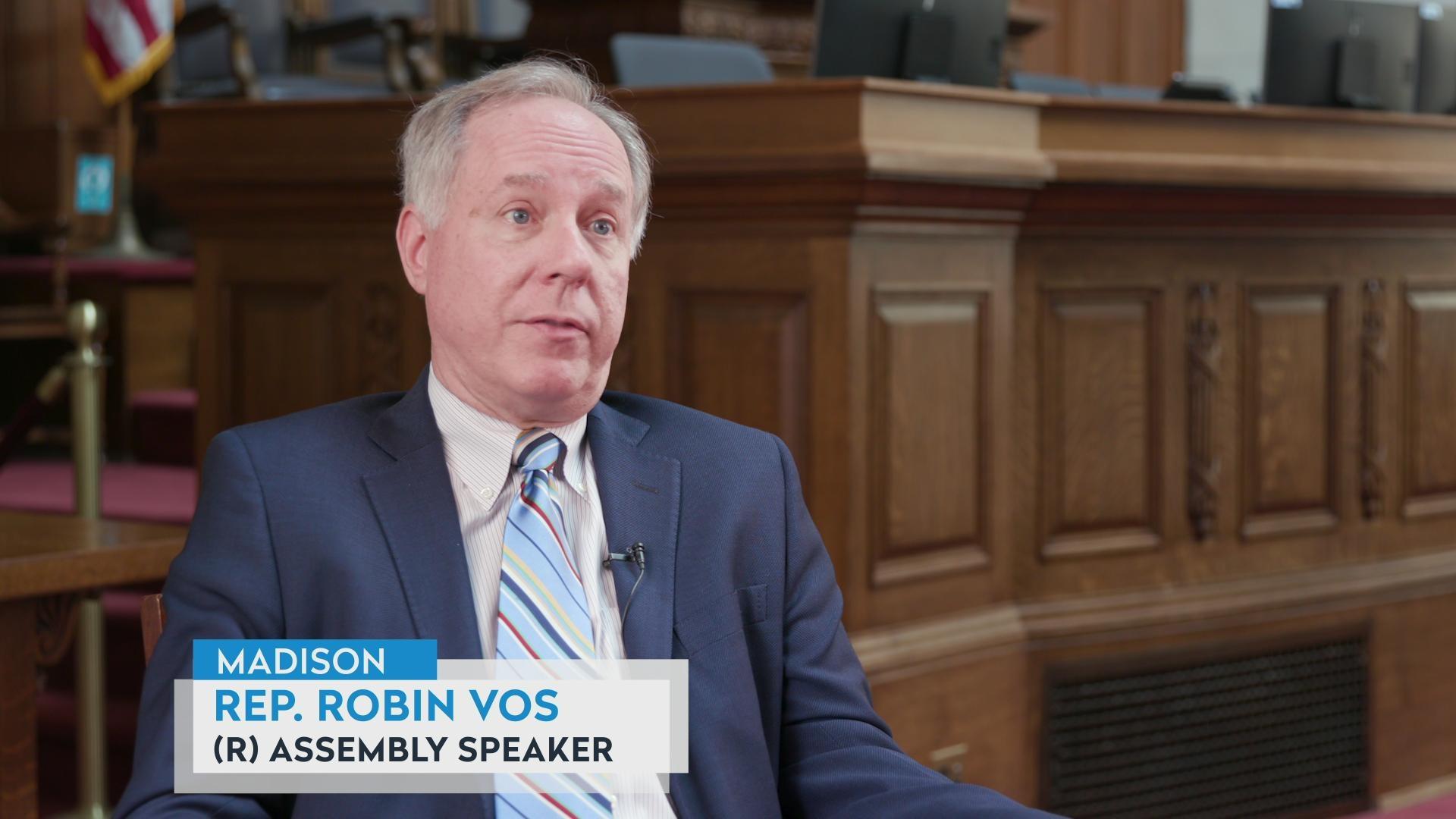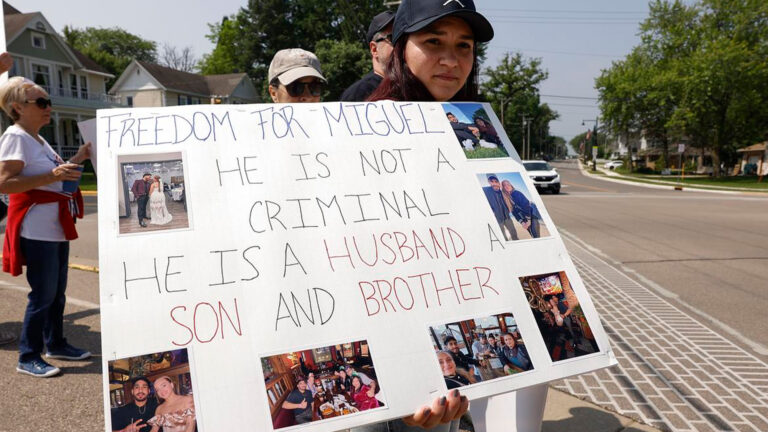Frederica Freyberg:
We begin with a one-one-one interview this week with Wisconsin governor Scott Walker. As 2013 comes to a close, we take a look at the year in review and we ask the governor with all the bills passed this year, which one will have the longest impact on our state. Walker also talks about the possibility that casino gambling will expand. And we got his thoughts on eliminating the state income tax. Here and Now reporter Zac Schultz put those issues before the governor.
Zac Schultz:
Governor Walker, thanks for joining us.
Scott Walker:
Great to be with you.
Zac Schultz:
Well, no protests, no recalls. Is it safe to say this was the quietest year you’ve had in office?
Scott Walker:
Yeah, it’s been very good. I think it’s good, not just for me and my family, more importantly, for the people of this state. It’s been kind of nice to see things calm down a little bit. I hope as we continue on in 2014, that will continue as well.
Zac Schultz:
Tax cuts have been a big issue this year, not only the tax cuts you signed in the biennial budget, but they’ve also come out recently, you looking at possibly eliminating the income sales tax. Is that feasible? Wouldn’t the sales tax have to nearly triple to make up for that lost revenue?
Scott Walker:
Well, that’s why this is early. I mean, this wouldn’t be anything we’d have an official plan on until almost a year from now, in the 2015-2017 state budget. We really want to avoid what other governors and other state leaders have done. And that is, in the past year, in Louisiana and Nebraska, governors proposed changes, big reforms like that in income tax, but they didn’t do any groundwork, and so it immediately kind of died in the legislative branch. What I want to do, is not just work with lawmakers, but ultimately hear from the public and see, should we keep chipping away? We cut taxes almost a billion and a half dollars, three years of property taxes going down on a typical home. Is it enough just to chip away? Or could we have a more dynamic impact on the state’s economy, if we did something like give up the state’s income tax, or take away a major portion of the property tax.
Zac Schultz:
Sales taxes are generally considered to be a regressive tax, meaning they hit middle class and poor people more than they do the wealthy. So if you raise the sales tax and lower the income tax, would that be considered a wealth transfer from the middle class to the wealthy?
Scott Walker:
Well, again, we don’t have a specific proposal on the table, so some of it could be out of outright spending reductions. Not all of it, obviously. But any plan like that, again, it’s part of the reason why we’re looking at really hearing from the public, hearing from stakeholders, hearing from taxpayers over the next year. Holding, in fact, I’ve already had the Lt. Governor and our Secretary of Revenue out, holding the first of many listening session to try and get the sort of feedback to see what impact would it have on taxpayers, and what impact it would have on our employers. But if we were to consider an option like that, we probably would put in pretty big safety valves for things like food, clothing, prescription drugs, other things like that, that would mitigate much of that concern.
Zac Schultz:
Tell me why you signed the Indian mascot bill.
Scott Walker:
From our standpoint, it was a difficult one. First and foremost, I didn’t ask for it. I’ve asked for worker training, $100 million of property tax relief, delaying the Medicaid transition. All those things were top of my list. This was not one of them. So, I spent the full amount of time possible looking at it. I spent a lot of time, every quarter, meeting with tribal leaders, certainly empathized with their concerns. If I could personally deal with this issue, I would work it out so that every mascot, every nickname that was offensive was something that could be mitigated, or that could be changed to remove that concern. By the same token, legal or not, I do think there’s a legitimate free speech concern. And to me, part of free speech, standing up for free speech, means even speech you don’t necessarily agree with. In this case, I don’t necessarily agree with everything, but not only do individuals have that right, I think collections of individuals have that right, in this case being school boards.
Zac Schultz:
As governor, did you have to look beyond the immediate bill to think about tribal relations with the sovereign nation?
Scott Walker:
Oh, yeah. Again, part of this is, the original bill would have eliminated entirely, going back to the way the law was before, which the law itself was one of the first of its kind in the country. Here, you have a slightly different process. Ultimately, the decision will be made as to whether or not a change is required or not by someone who is a civil servant, an administrative law judge, who already by their nature, is someone who hears disputes and acts on them. So it’s a fairly objective source. It falls into a quasi-judicial position. Again, it’s one of those where you weigh the rights of free speech with the rights of concerns that people have about potential discrimination.
Zac Schultz:
Sticking on the topic of Natives American, when do you expect to make a decision on the proposed casino?
Scott Walker:
Well, it took nine years for the federal government to act. Legally, I could take as much as a year and a half. I don’t plan on doing that. It’ll probably be some time before the election, some time probably by the middle of 2014.
Zac Schultz:
One of the biggest debates that took place last year during the budget happened within the republican party and had to do with the expansion of school choice. Now, the legislature rewrote your original proposal, and it ended up that the math we’ve seen at the end of the year is the families that benefited the most are the ones that were not having their kids in public school in the first place. Do you think that was the way to go?
Scott Walker:
No, my intention in terms of expansion, was to expand to allow new families, particularly low income families, to access private schools as an option, as an alternative if they don’t feel like the public schools in their areas are working for them. Both of my kids went to public schools. I went to a public school. I want a great public school system. One of the biggest reasons though why I support expanded school choice, and why I’d support it again in the future, is not just for the alternative that’s given to those families, to those students, but because it continues to put the pressure on. Now that we’ve given public schools, traditional public schools, the tools to operate more like successful charter and choice schools, I want those schools and those school boards to use those tools. Many of them have. The vast majority of schools have. But there are still some in the state that fall short of fully using those reforms to improve the education quality in their school districts. And so, whether it’s traditional public schools, charter schools, choice school, virtual school, or home school environments, I want to make sure that every kid and every family has the best choice possible.
Zac Schultz:
Perhaps the biggest bill that was signed in the beginning of the year had to do with the mining issue in Wisconsin. Now, the company that plans to mine is starting that permitting process, but they’re still probably years away from actually doing any real mining. At what point down the road? Are we years away from knowing whether the bill that you signed actually does provide enough environmental protections?
Scott Walker:
Oh, I think in the end it does, even without knowing the practical outcomes. What we did was not authorize, as you point out, a mine being built. What we did was authorize a science-based and predictable process for safe, environmentally sound mining. If we want to have any business, not just a mining company, invest a billion and a half dollars that can potentially lead to hundreds, if not thousands, of new jobs, we’re going to make sure that those companies, those employers, know that the rules aren’t going to change halfway through the process. Again, so we still have high standards for clean air, clean land, and clean water. We’re going to uphold those standards in this state. It’s going to be science based. But we also think it should be predictable. If they meet each of those benchmarks, ultimately, that company or any other company should be able to move forward.
Zac Schultz:
So finally, of all the bills that were passed this year, which one do you see having the longest impact years down the road?
Scott Walker:
Clearly, the budget bill. I mean, the fact that we were able to not only balance a budget from a few years ago that had a $3.6 billion deficit and turned it in almost a $760 million surplus, but we were able to put over a quarter of a billion dollars of new money into schools to provide more educational opportunities, to freeze tuition for the first time in two consecutive years in the UW System, but also to put more money into worker training, Veteran services, you name it. All of those things happened because of the tough but prudent decisions we made over the last couple years, and we made some other big reforms, like an entitlement reform. We’re now requiring people on food stamps, who were able-bodied adults without kids, to either be working or enrolled in one of our employment training programs before they can get food stamps. That will help transition people from government dependence to true independence.
Frederica Freyberg:
Here and Now will continue the conversation with Scott Walker when reporter Zac Schultz takes a look ahead to the governor’s goals for 2014, and the talk of a presidential run. We hope you’ll join us for that interview on Friday, January 3.
Search Episodes

Donate to sign up. Activate and sign in to Passport. It's that easy to help PBS Wisconsin serve your community through media that educates, inspires, and entertains.
Make your membership gift today
Only for new users: Activate Passport using your code or email address
Already a member?
Look up my account
Need some help? Go to FAQ or visit PBS Passport Help
Need help accessing PBS Wisconsin anywhere?

Online Access | Platform & Device Access | Cable or Satellite Access | Over-The-Air Access
Visit Access Guide
Need help accessing PBS Wisconsin anywhere?

Visit Our
Live TV Access Guide
Online AccessPlatform & Device Access
Cable or Satellite Access
Over-The-Air Access
Visit Access Guide
 Passport
Passport


















Follow Us